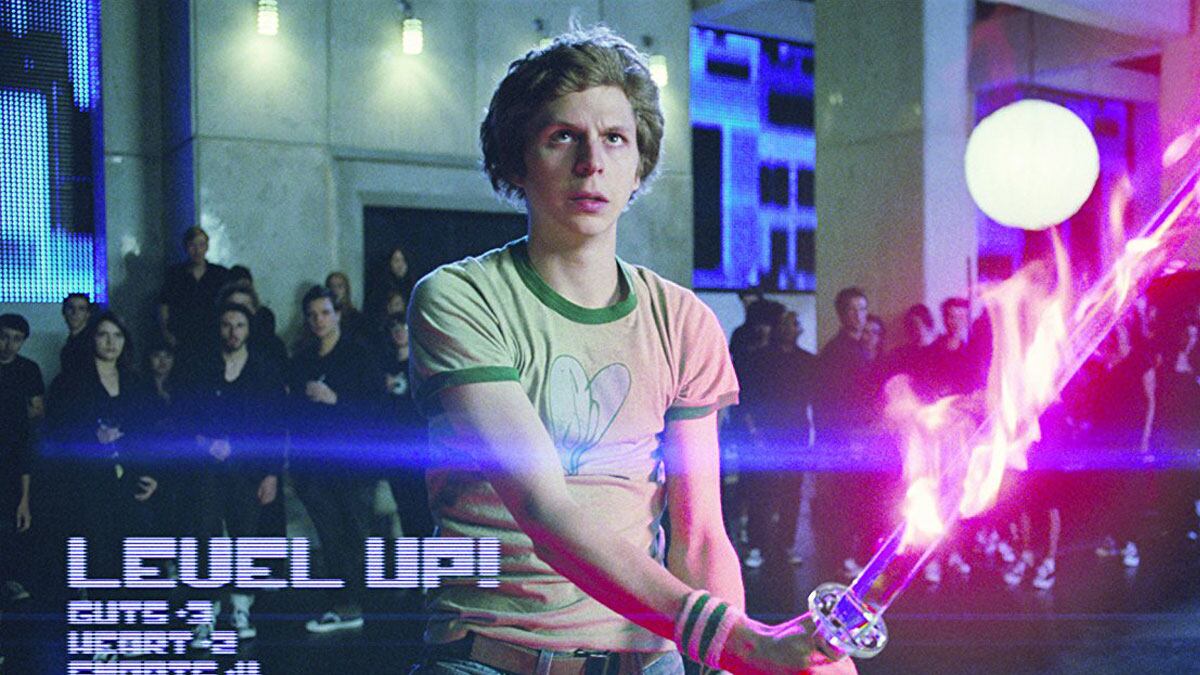Even as caped crusaders and masked vigilantes threaten to overtake mainstream culture, Portland comics publisher Oni Press has evaded the fray. If they don't have a signature franchise, that was always sort of the point: Oni's projects are each singular and often strange.
But in the two decades since its first book hit the shelves, Oni has cut a very particular swath through the culture while defying genre at every turn. Kate Beckinsale's arctic thriller White Out, the pop-art whimsy of Michael Cera movie Scott Pilgrim vs. the World, and last year's lurid Charlize Theron shoot-em-up Atomic Blonde were all based on Oni books—and lately Oni has a movie production arm. But the press has also put out adult coloring books featuring strap-ons and highly detailed vaginas, the graphic adventures of Rick & Morty and Jay and Silent Bob, and adapted works by Stephen Colbert and Jim Jarmusch.
As the press celebrates its 20th anniversary, we sat down with Oni co-founder Joe Nozemack and James Lucas Jones—who is changing job roles this year from editor-in-chief to a new role as publisher—to talk Charlize Theron, laser light shows and too many women.
WW: How did it all start?
Joe Nozemack: I was working retail at the time and, you know, comics had a big bust in the mid '90s. They were seen as this collectible thing dominated by superheroes, which always bugged me about the American comics market. On the one hand, I was kind of disgusted by what comics had become, but I still thought the medium was really great for storytelling.
If I was going to start a business, let's try to do the comics that I thought should be made—not too arty and alternative but also not so heavy-genre and nerd.
How do you choose what to publish?
Nozemack: When looking at a project, we ask: Is it a quality book? Who's the audience? From the start, I was just as passionate about doing kids' comics for kids, even though I wasn't passionate about reading them myself. We've tried to make sure good, original books were out there for that audience instead of just watered-down versions of adult ones.
James Lucas Jones: They ended up being pushed into the picture book category, which skews younger and not as literary, but attitudes are changing. An older generation of librarians less accepting of comics has been aging out.
Scott Pilgrim was the first Oni movie?
Nozemack: That was the first we were involved with as producers. Universal had been looking for material to give [Hot Fuzz director] Edgar Wright, who'd just been turning everything down. They sent Scott Pilgrim to him, he really loved it and we were off.
The movie underperformed. It had a lot of buzz and just didn't break out like we were hoping. But it really generated book sales. It's kind of interesting—I don't think anybody really looks at that film as an artistic failure. You go take meetings in the industry, and everybody's always excited about Scott Pilgrim. There are theaters that show it all the time. I saw clips of one that had a whole light show and smoke machine. It was crazy—like Rocky Horror on steroids.
And, Atomic Blonde was based on …
Nozemack: … our original graphic novel called The Coldest City. One of our production guys down in Los Angeles was already working with [Theron's] production company when the book was in development, and it all went the way you always hope it would. They did a great job with it.
The film comes across as different from the comic.
Nozemack: Since it's set in '80s Berlin, they decided to go all the way with the period and the color and the soundtrack, but the character arcs are kept intact. Some of that is Charlize, too. She's a unique person, and she definitely has her own take.
Oni has become known for having a lot of female lead characters.
Nozemack: For a while, we had so many female protagonist books, we were, like, please—pitch us some dudes!
Lucas Jones: Again, that's something we weren't seeing realized in the comics market, particularly when those comics were coming out. We thought they should be there for not just the female audience, but so the male audience too could see empowered badass ladies have a starring role as complicated characters in a compelling narrative.
Nozemack: Viewing female characters as the lead of their own story and not the support was definitely a plan. If somebody had brought us one of those superhero books with a female in some crazy exploitative costume, I think we'd know the difference between that and a book made for females.
You were the first company to work with Kevin Smith?
Nozemack: When Kevin wrote the original Jay and Silent Bob stuff, nobody was doing those kinds of projects with the filmmakers directly involved. With licensing, we've always been very picky. Our opinion was, let's create new original content. It was always more about the creatives behind the properties. We were more excited to work with Stephen Colbert than work on Tek Jansen.
You did a comic with Stephen Colbert?
Nozemack: He used to have this skit on the show about, like, an unpublished science fiction novel, so we reached out to his reps about making a comic of that concept—basically, a graphic novel adaptation of a fake book.
It's about working with [creators] directly. That's come to be an aesthetic of how we carried through work on the Colbert book or the kids' comics with Yo Gabba Gabba! or Invader Zim with Jhonen Vasquez, or Rick & Morty with Justin Roiland and Dan Harmon.
Lucas Jones: We asked Justin and Dan if they'd even want comics before we ever reached out to Cartoon Network about licensing.
They were both pretty involved in terms of picking the original creative team and giving notes and feedback as we progressed on each individual issue. We've had Justin do some covers and he actually drew the lead story for one issue. For the hardcover, we got the actual voices on a soundclip that plays when you open the front cover.
Nozemack: We've seen a bump in sales at the beginning of each season. And with the amount of time it takes them to do a season, that's great for us. If people want a Rick & Morty fix, they have to get the comic.
How has Oni changed over the years?
Nozemack: Overall, I still think we're just a little bit more idiosyncratic and left of center and creator-driven than our competitors or colleagues.
Lucas Jones: We're continually trying to find new voices or rarely explored elements of genre archetypes. For us, it's just continuing to find those new takes. When there's a certain talent pool, then you're competing with other publishers the whole time.
Nozemack: Keeping things from being too one-dimensional has always been a goal here. We'd get very bored just focusing on one type of book, and usually look to see if we have too much of something.
Are there people who only buy Oni? The way people used to collect just Marvel or DC?
Nozemack: No. I don't think there ever have been. We don't want one thing to appeal to everybody. We want to find the right book for each person, which feels more specialized and more personal. If the same person were buying all of our books, one of us would be doing something wrong. Keep the content fresh and varied and broad, you can last 20 years.

